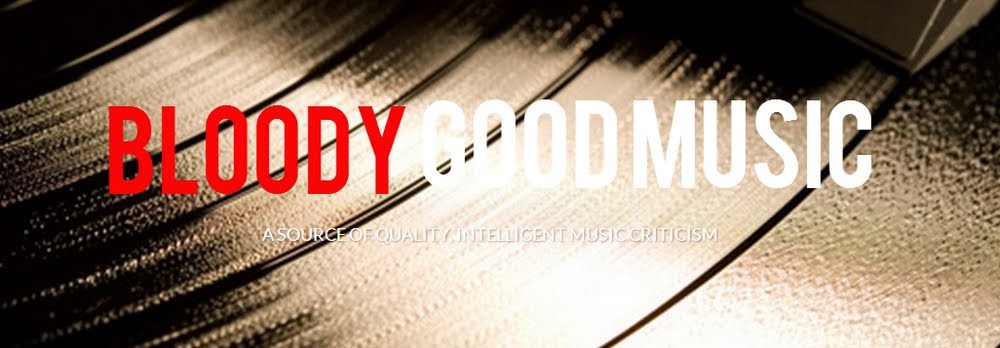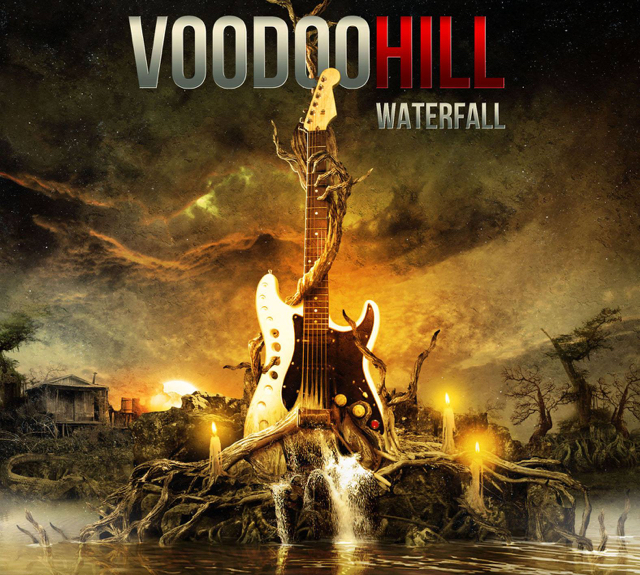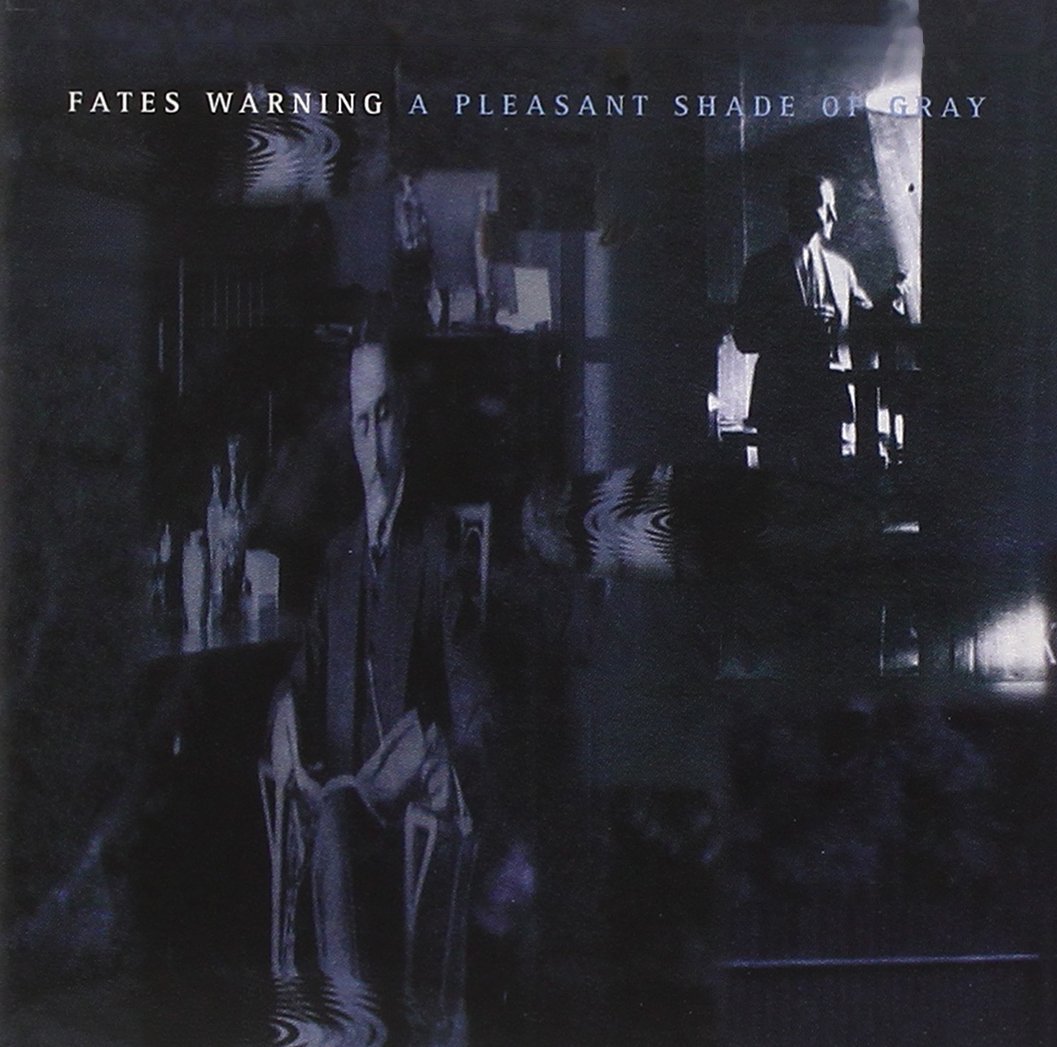Welcome to the first installment of Discography, wherein I will venture all the way through an artist's career, giving my take on the entire ebb and flow of a lifetime of work. First up on the docket is Elvis Costello. In honor of his just released memoir, I figured now would be a good time to take a look back at the prolific career of one of my favorite songwriters. For the sake of this exercise, I will not be including his collaborative efforts. This will stick with his albums of original material.
My Aim Is True (1977)
Hearing this now, it's hard to see what the fuss is about. It sounds like a late 70s bar band, because that's sort of what it is. But if you can strip away the decades of musical evolution, what this record turns into is a fascinating look at the early development of Elvis as a songwriter. To come out of the gates with songs as strong as "Alison" or "(The Angels Wanna Wear My) Red Shoes" is amazing. And while the record lacks the propulsive force The Attractions would give later works, this stands up as one of the best written debuts I've ever heard. Purely from a songwriting perspective, I'd say it's better than its more lauded follow up:
This Year's Model (1978)
Another great record, and the first time we got to hear the thunderous power of The Attractions. Elvis is a great songwriter, but the band brought his songs to life. Their energy, and their nuance, were able to shade and highlight in all the right places. This record ups the bitter anger of the debut, churning out some hard-hitting numbers to go along with Elvis' pop tendencies. My issue is that this record was defined by "Pump It Up", which is one of my least favorite of his songs. A great record, but this is sandwiched by two classics.
Armed Forces (1979)
The best pure Elvis Costello album. This record is the pop playbook chopped up and put back together a dozen times. Elvis never did a better job of fusing his lyrical dexterity and his pop melodicism than he did here. "Oliver's Army" is legendary for it's sugary hook hiding a sinister message, but "Accidents Will Happen" and "Party Girl" are every bit as good. The Attractions showed their versatility throughout the record, and it was here that you could begin to see the makings of Elvis' career.
Get Happy (1980)
The first forgettable Elvis record. It's by no means a bad record, and "New Amsterdam" and "High Fidelity" are long-running standards, but there was simply too much material being produced at too rapid a pace for the record to work. Twenty tracks buzzing by in two minute bursts didn't work, and even the good songs were somewhat under-developed. But this was not a harbinger of doom, merely a correction that lowered the expectations so Elvis could get back to making more daring records.
Trust (1981)
This is where Elvis became divorced from his image. This was no angry punk record, it was a pop record that had as much debt owed to the 50s as to the New Wave. The Attractions were no longer needed for their power, but rather their skill at impersonating whatever feeling Elvis was co-opting. This is a radically mature record, one that requires a more subtle listen than anything that came before. It's a great record, if taken in the proper context.
Imperial Bedroom (1982)
A continuation of the previous album, this one found Elvis stretching himself to his pop limits. From the horn arangements in one song, to the spartan instrumentation of another, there was nothing holding the record together except Elvis. The second half drifted a bit too far, but there are a half dozen standouts, including what might just be Elvis' best ever song, the incredible "Man Out Of Time".
Punch The Clock (1983)
Goodbye Cruel World (1984)
I will lump these together, because they fit the same mold. After "Imperial Bedroom", there was nowhere left to go. Elvis had reached the end of what he could do with pop songwriting, so a turn back towards the conventional was underwhelming. It comes through in the songs, which lack the bite of anything from the previous records. These are regarded as his lowest point, and not without good reason.
King Of America (1986)
The beginning of an unimaginably great year. This is Elvis' best record, although it is certainly not for everyone. Stripping away everything about his persona, Elvis created a somber album of acoustic ballads that would be flawless, if not for the unnecessary inclusion of a couple up-tempo country songs that ruin the mood. This is Elvis' darkest album, his most raw, and a perfect illustration of what it means to be a songwriter. There's no adornments, only the meat on the bone.
Blood & Chocolate (1986)
Bringing back The Attractions, they managed to put aside their differences to pound out this record, a messy affair that bristles with energy. It has its flaws, but there's no denying the greatness of songs like "I Want You". They show Elvis recapturing his songwriting powers, and making the best purely Elvis record since "Armed Forces". 1986 looked like the beginning of a new gilded age, but that's not how it worked out.
Spike (1989)
This album is a mess. It goes in every direction, and never hits any of the marks. There is good material here, but Elvis' fascination with this, that, and everything once again rears its head, as the lack of focus keeps the record from ever coming together as a single piece of work. It remains frustrating to listen to.
Mighty Like A Rose (1991)
Another forgettable record, but without even the pretense of taking risks. This is an album that fades into the dust of time.
Brutal Youth (1994)
Once again with The Attractions in tow, Elvis got back to basics. That meant an improved record, but one that was still lacking. "Sulky Girl" and "This Is Hell" are fantastic, but at nearly an hour long, there's too much material here for its own good. The best songs are washed out with lesser material, and even The Attractions can't keep their interest all the way through.
When I Was Cruel (2002)
Back on his own, Elvis returned to his rock roots for the first time in nearly a decade, but with a twist. This record was built from drum loops and hints of electronic music, making it another one-off experiment. However, this was a far stronger set of songs than anything in fifteen years, so it was also a most welcome comeback. "Dust" and "Dust 2" are two takes on the same great melody, "Episode Of Blonde" is a powerful dip into hip-hop waters, while "Tart" is the most underrated song in his entire catalog. It is genuinely a brilliant song that never gets brought up when talking about his best work.
North (2003)
And now for something completely different, as they say. This album is a classically inspired, piano based album of ballads cycling through the end and beginning of love. It's a record that is too subtle for its own good, but even so, Elvis finds some great melodies to show he can write in the style. "Still" is a captivating bit of music.
The Delivery Man (2004)
Taking a trip to the American South, this album is a semi-conceptual piece that really can't pay off that idea. However, there are pieces of songs here that are truly great. "Country Darkness" is stirring, while "Either Side Of The Same Town" is one of the best songs Elvis wrote after 1986. This is another album that requires a certain mood to listen to properly, but it's the best of his genre-hopping. There is a very good record in here, if you're in the right frame of mind.
Momofuku (2008)
Once again back to basics, and Elvis makes us believe once again. This is a raw and raucous record, and it totally works. There's nothing in either the songs or the production that tries to do anything out of the ordinary, so Elvis is able to write his songs without worrying about needing a net to catch him. "Stella Hurt" is a glorious return to the "Blood & Chocolate" days, while "Go Away" is a pop delight. All these years later, Elvis proved he could still be the Elvis people remember.
Secret, Profane & Sugarcane (2009)
National Ransom (2010)
And to finish our journey, we get a pair of records that find Elvis taking on the mantle of an early 20th century American folk and Vaudeville performer. These records are interesting to hear, but feel out of place. There is good songwriting, but the sound is so antiquated that it's hard to listen to these as current songs, and not as artifacts of a time we've left behind. Their charms are difficult to find, and I seldom think of these as being strong records.
And with that, we have reached the end. Elvis' discography is long, and it takes a lot of turns. It may not be the highest compliment, but this exercise reaffirms that Elvis Costello is more of a singles artist than one for complete albums. Cherry-picking the best songs, he has built a body of incredible work. But album by album, there are only a handful I would single out and say are essential. But the fun is that you get to listen and decide for yourself.





















